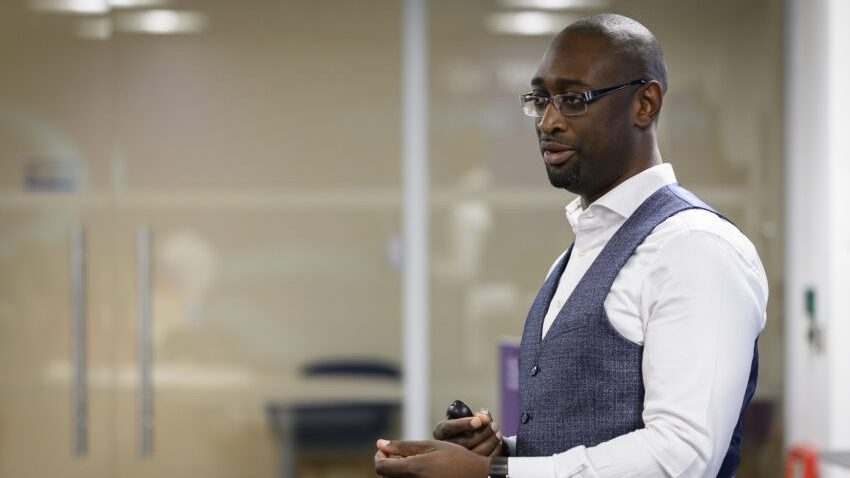“It’s not about diversity”

The idea that companies should look out for people other than themselves is a simple one. But it has spawned all sorts of complicated-sounding acronyms, from CSR (Corporate Social Responsibility) to CSV (Creating Shared Value) and, of course, ESG. One such is D&I (Diversity and Inclusion). For Joel Blake OBE, Founder of GFA Exchange, an intelligence platform for lenders, the “I” is much more important than the “D”.
“It’s not about diversity, it’s about inclusion”, he says. “If you create the right state of inclusion, diversity will naturally fall into that, but if you focus on diversity alone you end up trying to find those who look slightly different, might be slightly different for whatever reason, but actually you’re just creating a legion of the same.” For this reason, Blake is no fan of quotas, seeing them as a tick-box exercise that makes it all too easy for a company to change its appearance without changing itself. Somebody stuck in one way of thinking is stuck in that way of thinking, regardless of gender, skin colour or any other characteristic a quota might select for.
Blake prefers far more fundamental change. A self-described “rebel in a suit”, his first taste of corporate life was work experience in accountancy, an experience which taught him that financial services were “very traditional, very conservative but also very, very powerful and very, very influential in terms of driving business support, driving economic change, and driving inclusive growth for all.” Bored with bookkeeping, Blake became a mentor within the National Careers Service before starting several businesses. But it was a formative time. “I made a bit of a pact to myself”, Blake says, “that I would stay in the corporate space but never lose that kind of rebel mentality.”
GFA Exchange is part of the rebel’s latest assault. The platform, which serves lenders including NatWest, allows lenders to benchmark businesses’ health against others’ that use the platform, not just against their own portfolio. Importantly, at least for financial inclusion, the platform links businesses and lenders together, making it easier for a business to find capital. If a business scores too poorly for one lender, they can “trade” it with another on the platform, meaning “that I can divest the businesses that are not going to add value to my business, but connect them with other organisations.” That is more helpful, and more inclusive, than just saying, “‘Sorry, we can’t give you the money, take care and wishing you the best of luck.’”
Inclusivity could be big business. Take one aspect: gender. Women starting businesses at the same rate as men would boost UK GDP by £250bn, according to the Alison Review. Blake himself, speaking about a previous role, says “he was part of the problem” inasmuch as he was applying lending criteria that filtered out too many good businesses. “We were saying ‘no’ to three times as many businesses as we were saying ‘yes’ to”, he says, which made him think, “There’s got to be a better way of doing this, because some of those businesses were great businesses that just didn’t fit our profile.”
But at the same time, as Blake knows, lenders are naturally interested in their own returns more than they are in marginalised groups or the economy as a whole. What if GFA Exchange revealed that investing with, say, female founders was actually a riskier bet? Would that take away from the platform? “What we provide back to the lender”, says Blake, “is all the information, why female founders are not good investment risks in that hypothetical scenario, and therefore, the lender can still make a much more informed decision about how they want to support female founders”. It may well be that female-led businesses are not right for a particular lender, he says, but the platform is still inclusive because the lender could trade it for another.
Important, says Blake, is that lenders should be “fair and equitable”, which he defines as lending to businesses with the potential to grow. But what if those businesses with the best potential to grow tend, hypothetically, to not be those that belong to marginalised groups? “If the data evidence that as being true”, he says, “if you’re making that decision, without taking on board the various different elements that those different groups bring, you may not be the organisation that they should be working with in the first place.” Asking lenders to consider something other than their bottom line is a tall order. At least GFA Exchange makes it easier for businesses to find them.